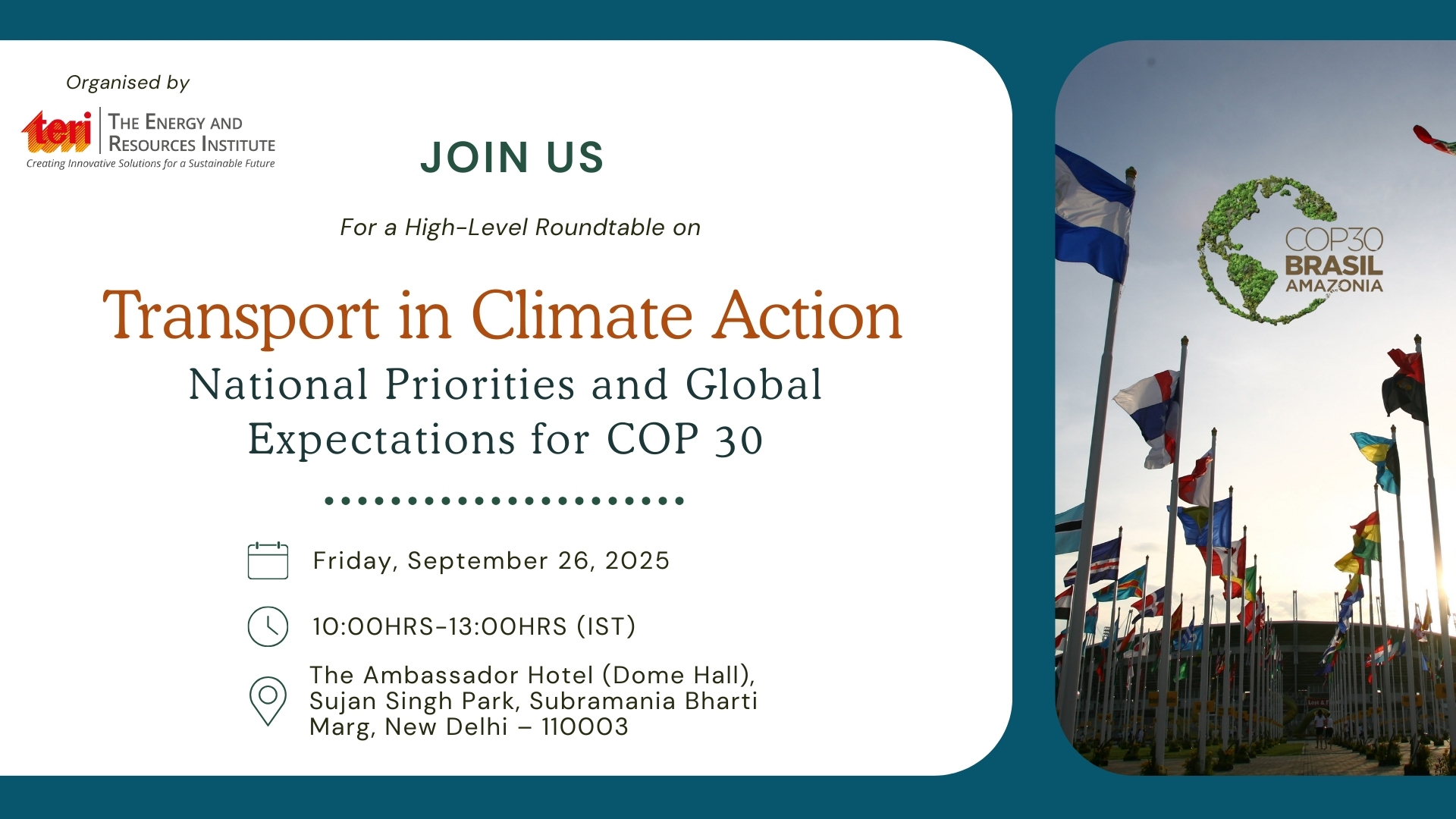Transport in Climate Action: National Priorities and Global Expectations for COP30

In a strategic initiative, TERI is hosting a pivotal roundtable discussion titled ‘Transport in Climate Action: National Priorities and Global Expectations for COP 30’ to address the critical role of transport in global climate efforts, aligning national priorities with international expectations ahead of COP 30. This roundtable discussion will gather policymakers, industry leaders, representatives from financial institutions and academia to explore how equity, ambition, and finance can drive transport decarbonisation in developing countries like India.
Building on the foundational principles of the United Nations Framework Convention on Climate Change (UNFCCC) and the Paris Agreement, the discussion will acknowledge historical differences in developed and developing countries and the need for equity in climate action. Within this framework, the transport sector has emerged as both a challenge and an opportunity. Globally, transport accounts for nearly one-fourth of CO₂ emissions and is the fastest-growing energy related sector. According to TERI’s analysis, out of total 157 countries or country groups analysed, 72 countries have included transport-specific targets. Many of these are conditional on international finance, technology transfer, and capacity-building—highlighting the centrality of global support to enable low-carbon mobility in developing countries.
For India, which aims for net-zero by 2070, recent initiatives like CAFE norms, FAME scheme, PM E-DRIVE, PM e-Bus Sewa, Ethanol Blending Programme, and Dedicated Freight Corridors are crucial steps towards decarbonisation in transport.
Key discussion objectives include:
- Promote equity through CBDR: Explore how the principle of Common but Differentiated Responsibilities (CBDR) can be leveraged within NDCs to balance sustainable mobility with economic growth in developing countries, while aligning domestic and global commitments.
- Reflect on India’s progress and way forward: Assess India’s recent achievements in transport decarbonisation—such as EV adoption, ethanol blending, and freight rail expansion—and identify opportunities and challenges for the road ahead.
- Strengthen policy alignment: Discuss how transport action can be more effectively embedded in climate frameworks by linking sectoral policies with NDCs, carbon budgets, and monitoring systems.
- Identify financing pathways: Examine the role of public-private partnerships, multilateral development banks (MDBs), and climate finance mechanisms in mobilising resources for a just and ambitious transition in transport.
- Learn from global experiences: Draw lessons from the strategies adopted by developed and developing countries to reduce transport emissions and assess their applicability in the Indian context.
Join our high-level roundtable discussion on "Transport Decarbonisation: Equity and Action Ahead of COP30"
